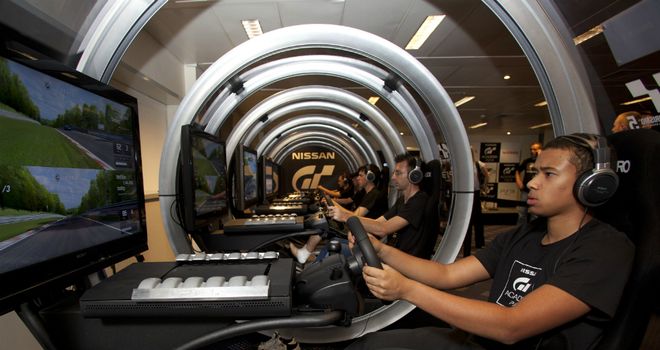There was a lot of talk about the role of the teacher in regards to SLA and technology in this week's readings and in the online tutorial. I found myself pressing further back to its very essence. In its basic form, just what is a teacher?
Douwe Beijaard (Beijaard et al, 2000: 751) stated that
'teachers derive their professional identity from (most combinations of) the ways they see themselves as subject matter experts, pedagogical experts, and didactical experts.'
However, what if you were to remove any of these aspects? Has technology made these elements redundant? In our online tutorial, it was mentioned how Adelaide University had cancelled all lecture-style classes and replaced them with online video-lectures.
"If students can get the material online, they are not going to come to lectures"
(Warren Bebington, vice-chancellor University of Adelaide)
I am, for the most part, self-taught in Korean, and though I am nowhere near fluent, I would say that my Korean is passable. In fact, I would nearly go so far as to say that anything can be self-taught if given enough time and opportunities. Consider a Groundhog Day-like situation. Having an infinite time to study and practice by himself, Bill Murray's character becomes adept in ice-sculpting, playing the piano and reciting French poetry.
Now this of course is a fictional occurrence, but the question still stands. Are time, money, and, in some regards, human ethics the only true factors hindering a person's learning? Give a man an endless supply of bodies, could he successfully remove an appendix? Trial and error would suggest he could, though it would leave a lot of cadavers in the morgue.
But what if you take away the unrealistic notion of countless bodies piling up and replaced it with a realistic simulation, giving the person countless attempts to succeed? Could a man learn to land a Boeing jet simply by using a flight simulator?
In
2008, Polyphony Digital, creators of the Gran Turismo racing games, teamed up with Sony and Nissan to create GT
Academy, a competition within the Gran Turismo games that gives winners a
chance to become real racing drivers. The 2011 winner, Jann Mardenborough, is now a single-seater racecar driver for Redbull.
"Interestingly, Mardenborough's video game experience means that he benefits more from simulator work than even some seasoned professionals do. Some pro racing drivers struggle to benefit from sim racing because they are so used to practicing in the real car."
(Joseph Barron, Gamestop, 2014)
This seems a fitting example of the Digital Native v Digital Immigrant as posed by Prensky (Prensky, 2001: 2) in that the previous generation just can't adjust to the modern methodologies and tech.
'There are hundreds of examples of the digital immigrant accent. They include printing out your email (or having your secretary print it out for you – an even “thicker” accent); needing to print out a document written on the computer in order to edit it (rather than just editing on the screen); and bringing people physically into your office to see an interesting web site (rather than just sending them the URL).'
However, it must be noted that in all these examples, these people didn't do it all alone. Currently, I am seeing a Korean tutor to improve my speaking skills. Jann Mardenborough required an instructor for his transition from gamer to racecar driver and even Bill Murray had a piano tutor. At some point, a teacher was necessary to:
1) Provide guidance and assistance
2) Accelerate the process
3) Ensure peoples safety
1) Provide guidance and assistance
Almost every Educational Theorist has now distanced themselves from the 'chalk-and'talk' style autocratic teacher of yesteryear. Beijaard stated that 'Teaching is much more than the transition of Knowledge' and that 'Teaching cannot be reduced to a technical or instrumental action that results in learning gains with students' (Beijaard et al, 2000: 751). Classes are now more focused on intrinsic learning, with the students front and centre, discovering information and knowledge, creating ideas for themselves, with the teacher acting as a facilitator to their needs.
2) Accelerating the process
Quite simply, at times it is a lot easier to be shown what to do than to figure it out for yourself. Perhaps the whole process is intricate or complex, or perhaps you just don't have the time to waste. If I'm paying for guitar lessons, then I'd rather be told where the D chord is than to spend the whole lesson trying to figure it out myself.
Now, this could be seen as a form of guidance, and a good teacher will generally know when to let the students figure it out for themselves and when to step in. However, sometimes, such as the case with Jann Mardenborough, where a lot of time and money was on the line, they simply couldn't just guide him through the process.
3) Ensure peoples safety
Safety isn't just about physical harm. It's easy to see how a driving instructor keeps you safe during a driving lesson, or a carpenter showing his apprentice how to use a lathe, but what about in a less hands-on classroom? In my last
post I mentioned how social anxiety is a hindrance to language acquisition. As such, so too is it the responsibility of the teacher to ensure a safe nurturing environment for his/her students.
Conclusion:
Of course, this is quite a large simplification of the role of the teacher and words such as guidance and nurturing were skimmed over lightly, but make no mistake, these are huge roles to fill in a person's education. It was merely an attempt by me to deconstruct the idea of a teacher and view it fundamentally.
So what does this all mean? Another Doomsday prediction of the end of teachers? Not at all. Just simply another viewpoint highlighting the necessity for teachers to distance themselves from the 'chalk-and-talk' and step into the role that the students need them to provide. In this Digital Age where information is abundant and you can play computer games that teach you physics and how to
build and land a space shuttle, the teacher needs to refine his/her role in the students learning. I am reminded again of our core reading this week of Blake's 'A Brave New Digital Classroom' in which he puts forward the notion that 'teachers who use technology will probably replace those who do not' (Blake, 2008: 30) or as David Thornburg more bluntly put it
"Any teacher that can be replaced by a computer, deserves to be."
Bibliography:
- BARRON, J., Meet the Gran Turismo player now driving race cars for real [online]. San Francisco: GameStop, 2014. [viewed 18 November 2015] Available from: http://www.gamespot.com/articles/meet-the-gran-turismo-player-now-driving-race-cars-for-real/1100-6419397/
- Blake, R. (2008) Brave new digital classroom: technology and foreign language learning. Washington, D.C.: Georgetown University Press, [electronic resource].
- Beijaard D., Verloop, N. & Vermunt, J. (2000) Teachers' perceptions of professional identity: an exploratory study from a personal knowledge perspective. Teacher and Teaching Education. 16. pp. 749-764
- DODD, T., University of Adelaide is phasing out lectures [online]. Sydney: Australian Financial News, 2015. [viewed 13 November 2015] Available from: http://www.afr.com/technology/apps/education/university-of-adelaide-is-phasing-out-lectures-20150625-ghxgozPrensky, M. Digital native, digital immigrants. On immigrants. On the Horizon 9.2001. 5. MCB University Press




